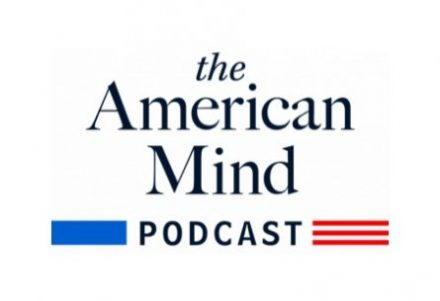Charles Kesler joins "The Seth Leibsohn Show" to discuss America's Cold Civil War.
Our Partisan Bureaucracy? The IRS, the DOJ, and the Future of Political Activism
When the first Civil Service Reform Act passed in 1883, “good government” reformers envisioned nonpartisan civil servants fairly administering the federal bureaucracy.The executive branch increasingly treats agencies like the IRS and the DOJ not as impartial regulators, but as partisan weapons for intimidating political opponents. Co-hosted with the Federalist Society.
John Eastman is Founding Director of the Claremont Institute’s Center for Constitutional Jurisprudence, and currently serves as the Henry Salvatori Professor of Law & Community Service at Chapman University’s Dale E. Fowler School of Law. He is also a Senior Fellow of the Claremont Institute.
The American Mind presents a range of perspectives. Views are writers’ own and do not necessarily represent those of The Claremont Institute.
The American Mind is a publication of the Claremont Institute, a non-profit 501(c)(3) organization, dedicated to restoring the principles of the American Founding to their rightful, preeminent authority in our national life. Interested in supporting our work? Gifts to the Claremont Institute are tax-deductible.
At this May 2014 Claremont Review of Books Forum, Fred Siegel discusses his new book "The Revolt Against the Masses" with commentary by CRB Senior Editor William Voegeli.
Judges must navigate between interpreting the Constitution and statutes, working within existing precedents and applying both bodies of law to particular cases. Striking this balance has policy consequences that render the Supreme Court a political branch in the public's mind. As the heated debate of Justice Antonin Scalia's replacement demonstrates, the Court is no longer seen as the "least dangerous branch." How should justices address this tension in their decisions and opinions? Can the Court return to a narrower vision of its judicial duty? If not, what judicial philosophy best fits the reality of the Court's role in a self-governing republic? Claremont's John Eastman joins an expert panel at the American Enterprise Institute to answer these questions and more. (Dr. Eastman's presentation begins at 65:09.)
The American Mind Podcast
James Poulos joins "The Steve Gruber Show" to discuss his op-ed over at Washington Examiner, “Manmade disasters.”






